Books and Publications:
Dr. Te Wu, our founder and CEO, has published a series of project, program, and portfolio management books designed to help project professionals to maximize their potentials. Currently, there are 7 published books with more in the pipeline. Note: All the book URLs are linked to Amazon.com. Most of the books are available in other bookstores.
Note: Visit this page regularly for special offers.

Purchase “Sensible Guide to Program Management Professional (PgMP) Success” and receive a $75 credit for any of the PgMP courses. Just complete this form and use Coupon Code “PgMPSuccess75” when you register for the class. This offer expires on 12/31/2021.
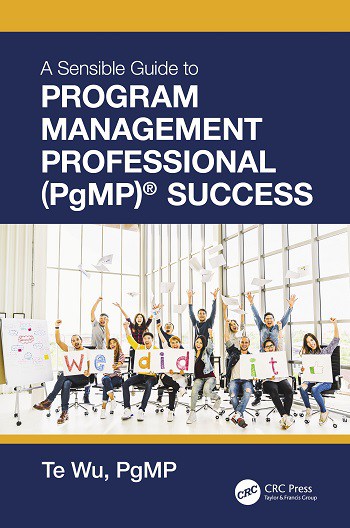
The Sensible Guide to Program Management Professional (PgMP)® Success – The latest book about preparing for the PgMP exam. The content of the book is based on our PgMP bootcamp, and the book comes with 420 practice questions.
A Sensible Guide to Program Management Professional (PgMP)® Success is for program managers preparing to take the PgMP exam based on The Standard for Program Management – 4th Edition (PgM4 Standard). It is designed for busy professionals whose responsibilities have taken them into the realm of coordinating, facilitating, managing, and leading programs. Program managers are leaders who are directly managing large amounts of project resources for their organizations.
This study guide addresses three main concerns facing PgMP exam candidates:
- What are the essential concepts, processes, and tools that form the foundation of today’s program management?
- Since program management is still an emerging profession with professionals often working in different ways, what does this mean for a “standard” exam? More specifically, how does that impact your ability to pass the PgMP exam?
- What is the best way to prepare for the PgMP exam?
To address the first concern, this book highlights the underlying rationale for program management: why it exists in organizations; why it is becoming ever more important; what programs are, especially for the purpose of passing the exam; how to think like a portfolio manager; and what the most important concepts, processes, and tools are for this profession. By simplifying complex ideas and communicating them in plain English with relevant examples, this book aims to help readers not only to pass the PgMP exam but also to serve as an essential guide for program managers.
For the second concern, this book differs from other study guides by describing the author’s personal experience as a program manager and addressing the most pressing questions for each of the performance domains in The Standard for Program Management.
To address the last concern, this book contains 420 practice questions, access to an online exam simulator and an online PgMP community, and a time-tested approach for passing the PgMP exam.
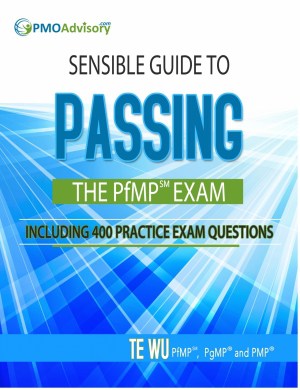
The Sensible Guide to Passing the PfMP Exam – This is the best seller in this focused category on Amazon.com with 400 practice questions.
- To prepare you for the experience-based questions, this book takes a novel approach. It attempts to train you how to think like a portfolio manager and how to address the top challenges and issues confronting portfolio professionals. By developing the right mindset, you will be far more prepared than if you rely on rote memorization of terminologies and processes.
- The author also shares his time tested approach to prepare for the exam, including his 30 days plan, 5 days to exam plan, exam aids to simplify memorization, and 400 practice exam questions.
- The book provides readers access to the online PfMP Exam Simulator for 30 days (starting shortly after registering the book).
Here are two recent comments from those who completed the PfMP exam:
“I am ecstatic to share my view on this guide as it helped me to PfMP credential in so many different ways that I have not only passed the PfMP
“I am preparing the PfMP test and I feel this book is extremely helpful. As I have done project/program excellence work in Microsoft while own P&L responsibility for eight years, I expected a book can quickly help me understand the PMI way of
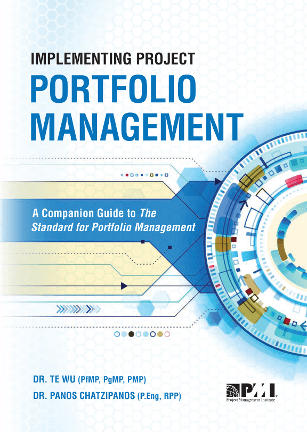
Implementing Project Portfolio Management – A Companion Guide to the Standard for Portfolio Management – Co-edited with Dr. Panos Chatizpanos and contributed by six more professionals, we developed this book after completing the PMI’s Standard for Portfolio Management – 4th Edition. This book contains valuable insights for project portfolio practitioners as they prepare for the exam. Note: For those preparing for the PfMP Exam, skip the chapter on Life Cycle to avoid confusion. The current PfMP exam is based on the third edition of the standard.
Implementing Project Portfolio Management addresses the “how-tos” of portfolio management. It is designed for three primary audience groups: Business Executives, Portfolio Leaders and Practitioners, and Portfolio Thinkers. The authors provide insights on how to apply the performance management domains covered in the standard that are in practice today by introducing tools and templates into their discussion. Far-reaching in its impact on portfolio management practitioners, thinkers, stakeholders, and the wider project management community, this guide envisions the continued transformation of portfolio management with the changing needs of organizations and advances in technology.
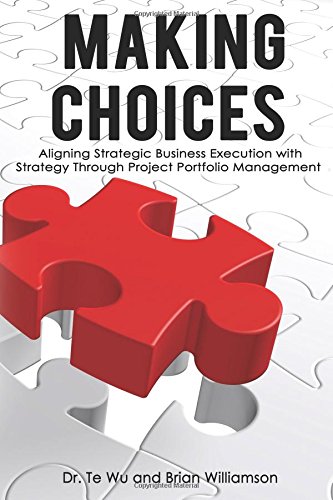
Making Choices: Aligning Strategic Business Execution with Strategy through Portfolio Management – Co-authored with Brian Williamson, this is a fictional book designed for portfolio managers who wish to gain a wider range of “experience” through stories.
As a recent portfolio manager leading the enterprise portfolio management office (PMO) of a growing consulting firm, Isabella Garcia found herself confronting a series of real-world firestorms that includes: poor adoption of new knowledge management (KM) systems, punishing schedule changes on mission-critical projects, managing difficult resources and capacity challenges, attracting strong talents to her team, prioritizing projects within the portfolio, determining requirements in an enterprise resource planning (ERP) implementation, managing up, down, and across the organization, and leading a merger and acquisition (M&A) endeavor. As a contemporary woman, Isabella is also confronting the challenges of balancing life, work, and more work. This a fictionalized business book based on actual and highly relevant situation that many project professionals, especially portfolio management professionals will face. The book is vital and relevant for those who aspire to complete the Project Management Institute’s Portfolio Management Professional (PMI PfMP) credential as one of the requirements is an experienced-based examination. Isabella’s many firestorms provide insights on the actual role of a portfolio manager and greatly enhance both the understanding and application of project portfolio management.
Project Management
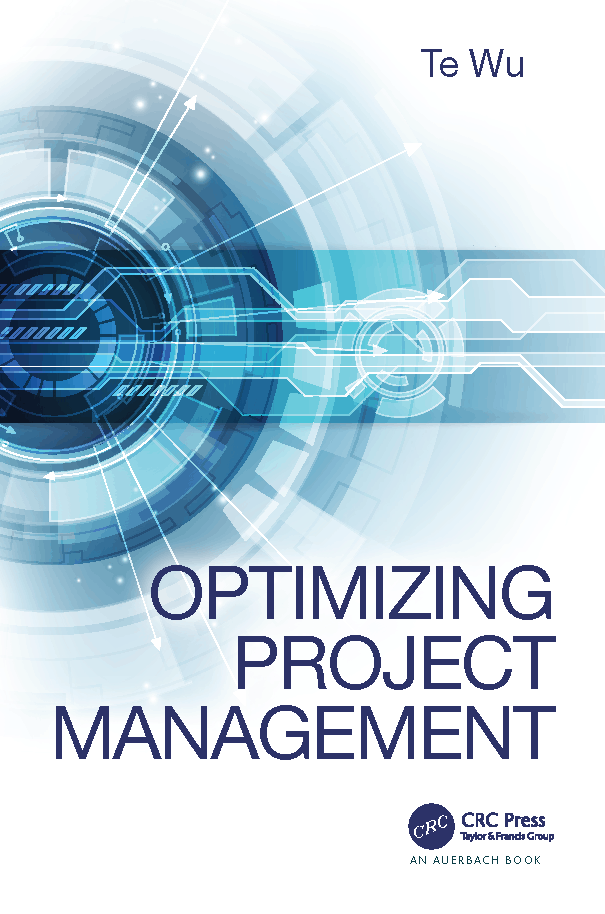
Optimizing Project Management – Designed for practitioners and students, the focus of this book is to provide a consulting approach to project management and to help professionals develop a “right-size” approach to project management.
The book contains twenty-one chapters and organized into four sections:
- Setting the Stage: Presents the importance of project management, especially in the competitive environment in which project exists
- Projects in Motion – From Ideas to Results: Highlights from generic phases of project management, from ideation to transition/closure
- Knowledge Domains: Discusses tweleve knowledge domains of project including: integration, stakeholder, scope, schedule, resources, cost, communication, risk, quality, supply chain, conflict, and governance management
- Beyond Project Management: Examines how to make the most of working with people and the environment of the project in the context of service management, program management, portfolio management, and strategic business execution.
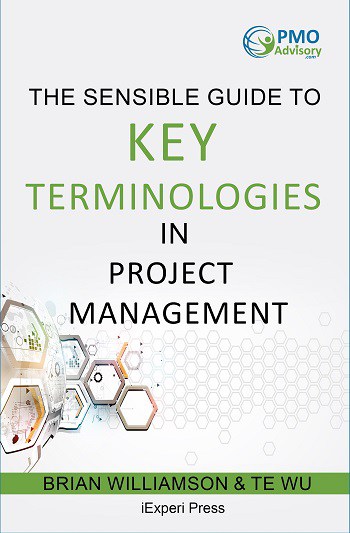
Sensible Guide to Key Terminologies in Project Management: Featuring the 500 Most Commonly Used Words – Co authored with Brian Williamson, this book highlights 500 of the most frequently used terms in project management.
This indispensable guide provides a clear description of the top 500 most common project management terms, across predictive and adaptive approaches. It is designed to promote a common vocabulary within teams and organizations.
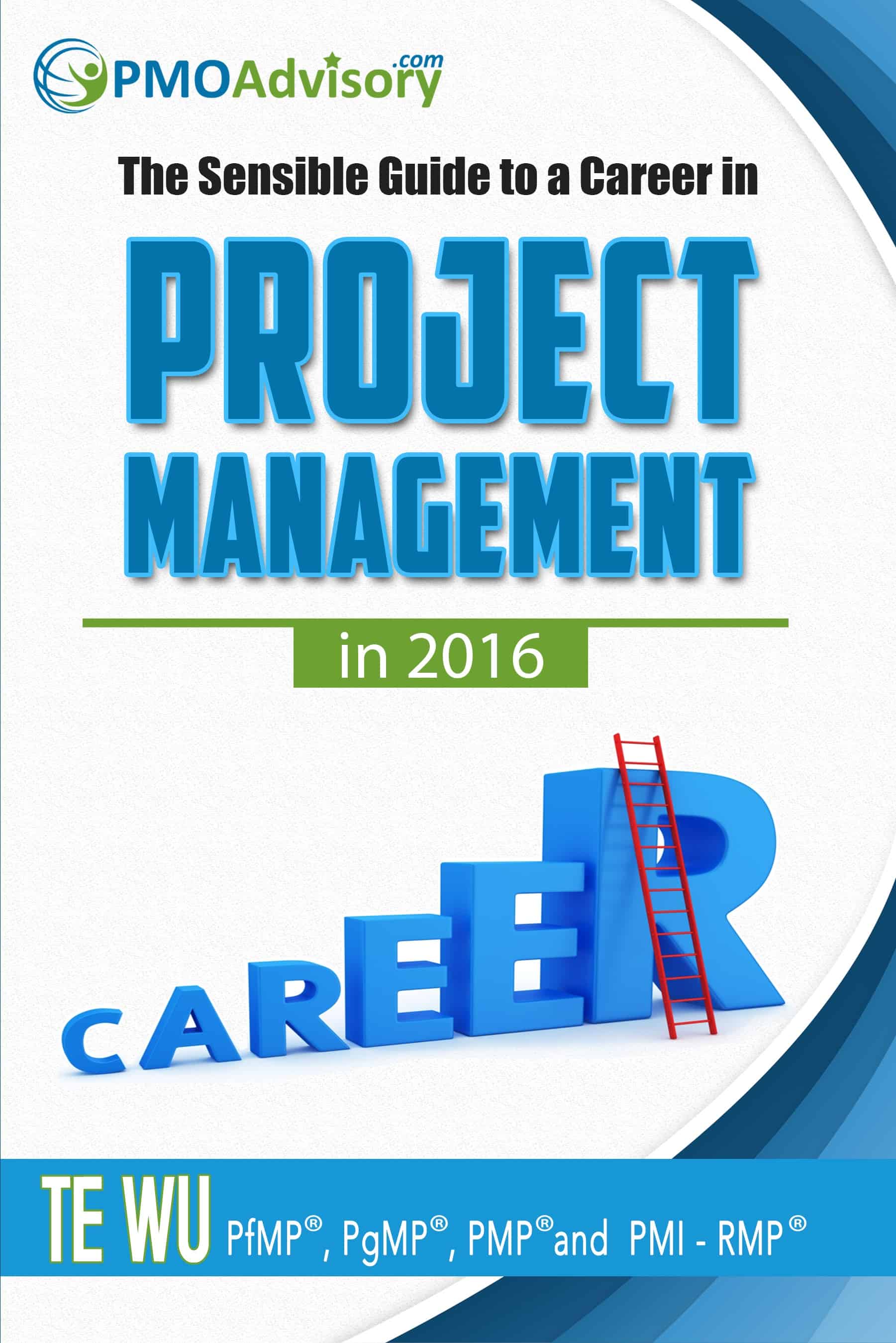
Sensible Guide to a Career in Project Management – Originally developed for project management students, this book helps emerging professionals to decide whether project management is a suitable career for them.
Project management has been growing rapidly for the past decades. Yet, until now, aspiring and practicing project managers struggle to find a relevant and timely guide on planning and developing careers in project management. In this comprehensive guide, the book provides the latest information on the state of the profession. In addition, the author proposed a career ladder with seven major steps as professionals start at the beginning and reaching the executive role, a stretch of twenty or more years.
